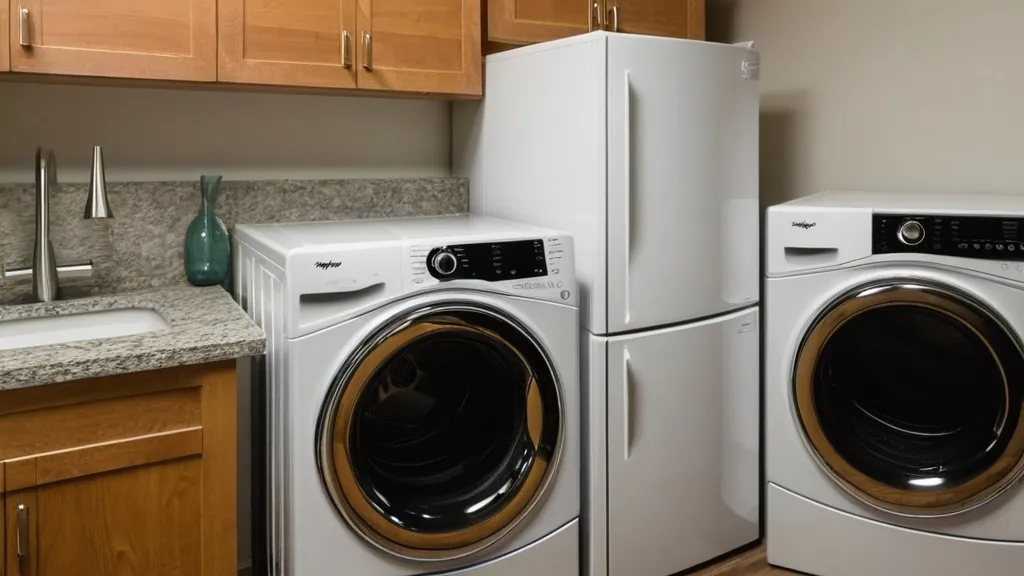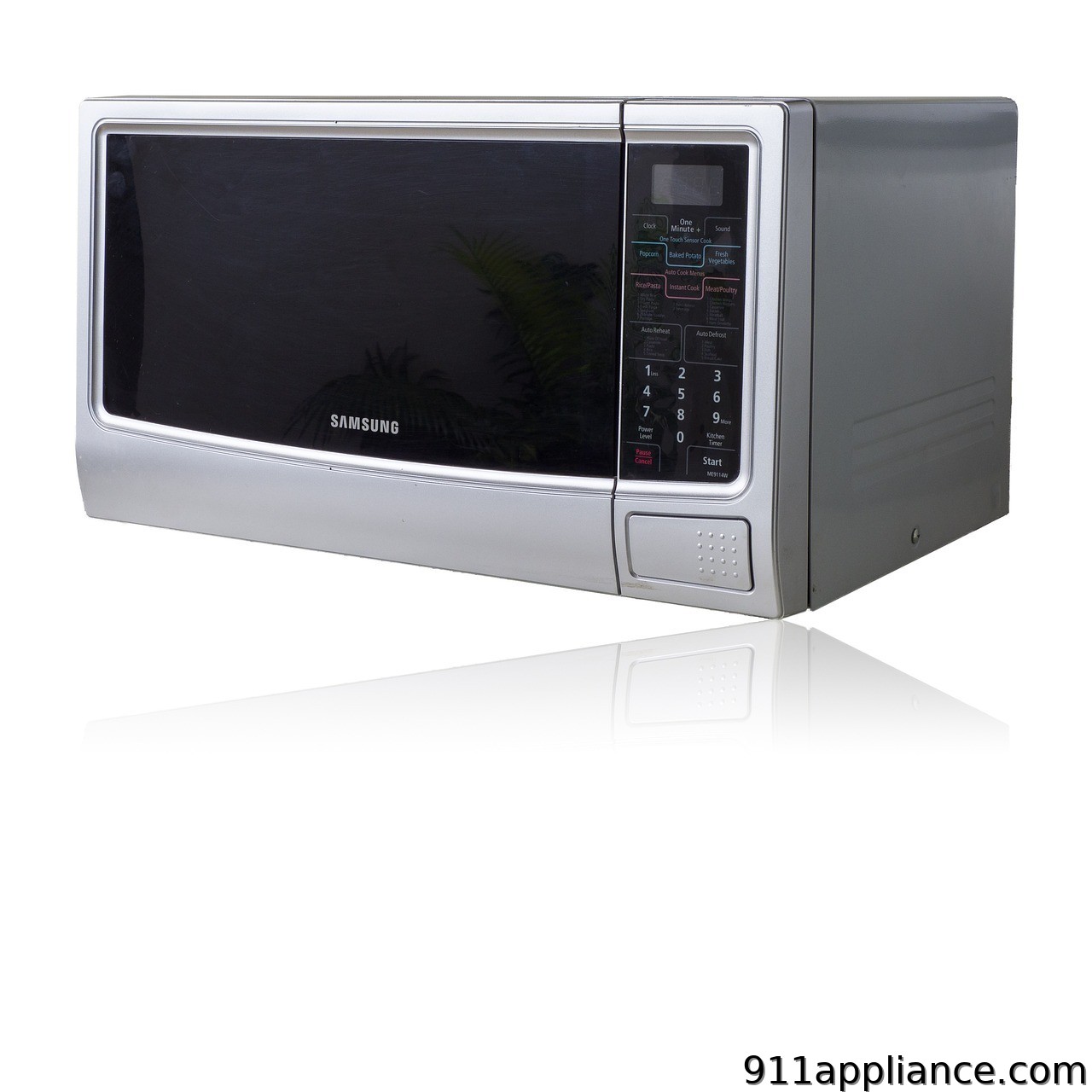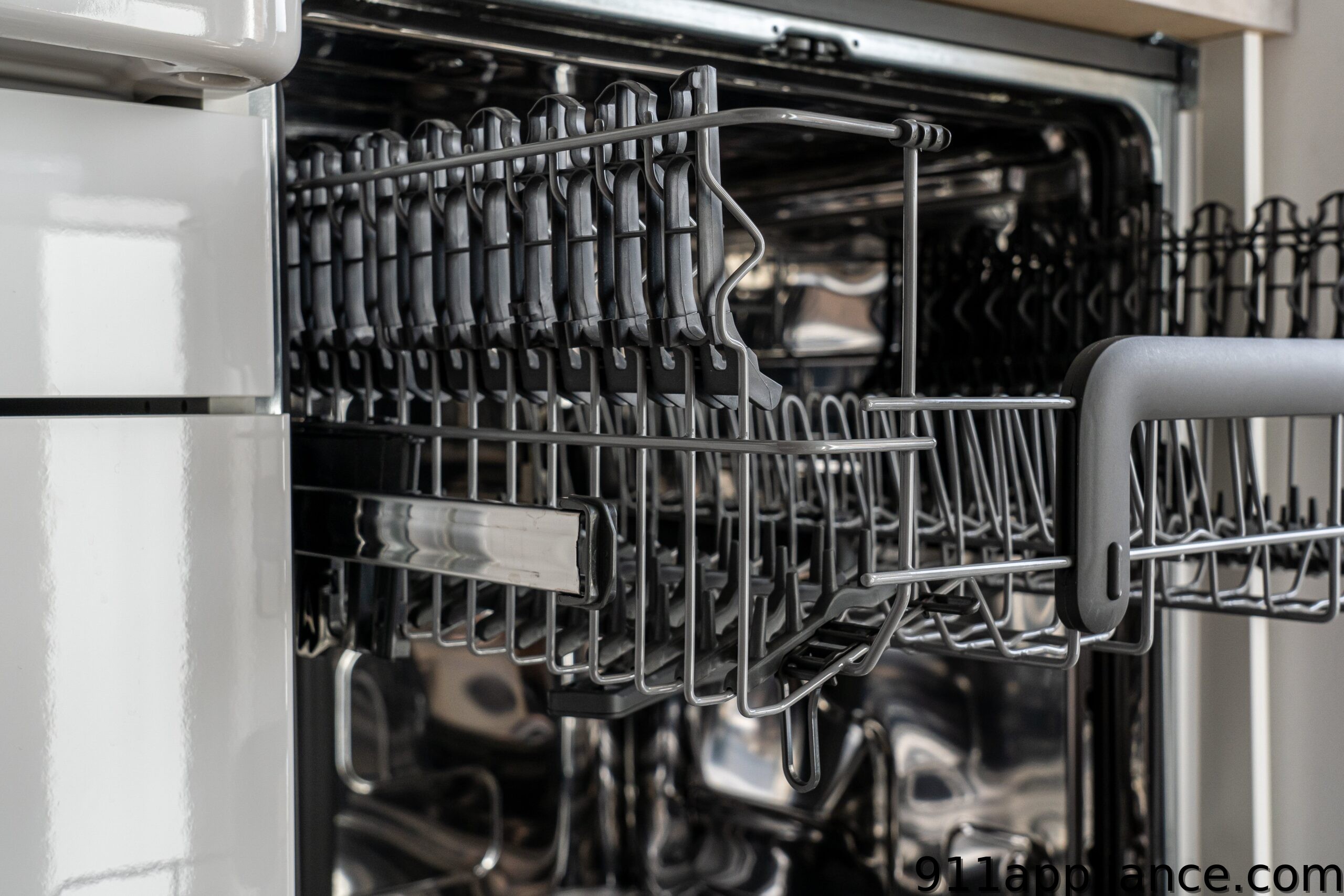No, you don’t have to register appliances for the warranty. A purchase receipt is generally sufficient for warranty claims.
Table of Contents
- The Myth Of Mandatory Registration
- Common Misconceptions About Appliance Warranty
- Legal Perspective On Warranty Voiding
- Warranty Vs. Registration
- Understanding Warranty Coverage
- Purpose Of Product Registration
- The Role Of Receipts
- Proof Of Purchase As Warranty Activation
- Storing Receipts For Warranty Claims
- Marketing Ploys And Registration Cards
- Consumer Information Harvesting
- Reading The Fine Print On Registration Forms
- Pros And Cons Of Registering Your Appliance
- Benefits Of Timely Registration
- Potential Drawbacks Of Sharing Information
- Manufacturer’s Perspective On Registration
- Why Companies Encourage Registration
- The Impact Of Registration On Customer Service
- Extended Warranties And Registration
- Additional Coverage Options
- Registering For Extended Warranty Benefits
- Real-life Scenarios
- What If You Forget To Register?
- Consumer Experiences And Advice
- ` Tags For Subheadings, And Incorporates A Table To Display Consumer Experiences And Advice. Key Phrases Are Bolded For Emphasis, Making The Content More Engaging And Seo-friendly.
- Best Practices For Appliance Warranties
- When And How To Register
- Keeping Track Of Warranty Details
- Navigating Warranty Claims
- Steps To File A Claim
- Avoiding Common Pitfalls In The Claim Process
- Frequently Asked Questions
- Can I Claim Warranty Without Registering?
- What Happens If You Forget To Register A Warranty?
- Do We Need To Register A Product For Warranty?
- Is Registering An Appliance The Same As Warranty?
- Conclusion
Registering your appliances for warranty is often recommended but not always required. While the purchase receipt usually suffices for warranty claims, registering your product can offer additional benefits. These can include extended warranty periods, faster service, and important updates or recalls.
Some manufacturers use registration to collect consumer information for marketing purposes. It’s essential to read the warranty terms provided by the manufacturer to understand the specific requirements for your appliance. By registering, you ensure that you are fully covered and can take advantage of any extra perks offered. This proactive step can save time and hassle in the long run.
The Myth Of Mandatory Registration

Many believe you must register appliances for warranty coverage. This is a widespread myth. Understanding the truth helps you avoid unnecessary steps.
Common Misconceptions About Appliance Warranty
Consumers often think registration is mandatory for warranties. This is not always true.
Here are some common misconceptions:
- Registration is required for coverage: Most products come with warranties without needing registration.
- Failure to register voids the warranty: This is rarely the case.
- Registration helps in faster service: While true, it is not a requirement.
Legal Perspective On Warranty Voiding
From a legal standpoint, not registering an appliance does not void the warranty.
According to the law, manufacturers cannot void a warranty for not registering. Some states even prohibit this practice.
Here is a breakdown of the legal aspects:
| Aspect | Details |
|---|---|
| Warranty Coverage | Remains valid with proof of purchase. |
| State Laws | Prohibit voiding warranty for non-registration. |
| Manufacturer Requirements | Must clearly state if registration is needed. |
Warranty Vs. Registration
Many appliance buyers often wonder about the difference between warranty and registration. These two terms are frequently misunderstood. Knowing their differences helps in making informed decisions.
Understanding Warranty Coverage
A warranty is a promise from the manufacturer. It ensures that the product meets certain standards. Warranties cover defects and malfunctions for a specific period.
Here are common types of warranties:
- Limited Warranty: Covers specific parts or defects.
- Full Warranty: Covers all parts and labor for repairs.
- Extended Warranty: Provides coverage beyond the standard period.
Warranties usually require proof of purchase. Always keep your receipts safe.
Purpose Of Product Registration
Product registration involves providing your details and purchase information to the manufacturer. This process has several benefits:
| Benefits | Description |
|---|---|
| Enhanced Support | Manufacturers can provide better customer service. |
| Product Updates | Receive notifications about recalls or software updates. |
| Extended Warranties | Some products offer extra warranty time upon registration. |
| Promotions | Get special offers and discounts. |
Registering your product helps in getting maximum benefits. It also ensures you are well-informed about your product.
The Role Of Receipts
Receipts play a crucial role in warranty claims for appliances. They act as proof of purchase, which is often necessary to activate warranties. Understanding how to manage and store these receipts can save you time and hassle in the future.
Proof Of Purchase As Warranty Activation
A receipt is more than just a record of a transaction. It serves as proof of purchase, which is essential for warranty activation. Manufacturers typically require this proof to validate your claim.
Without a receipt, you might face challenges in getting warranty coverage. This document confirms the purchase date, the product, and the price. All these details are crucial for activating your warranty.
Storing Receipts For Warranty Claims
Properly storing receipts is key to making successful warranty claims. Losing your receipt can complicate the process and might result in a denied claim. Here are some tips for storing your receipts:
- Keep physical receipts in a dedicated folder.
- Scan and save digital copies on your computer.
- Use cloud storage for easy access from anywhere.
Using these methods ensures you can quickly retrieve your receipts when needed. This practice can save you a lot of trouble and stress down the line.
| Method | Benefits |
|---|---|
| Physical Folder | Easy to organize and access at home |
| Digital Copies | Backup and prevent loss of receipts |
| Cloud Storage | Access receipts from anywhere |
Marketing Ploys And Registration Cards
Many appliance manufacturers encourage buyers to register their products. They often provide warranty registration cards. But are these cards really necessary? Or are they just marketing tools?
Consumer Information Harvesting
When you fill out a registration card, you usually provide personal information. This can include your name, address, email, and phone number. But why do companies want this data?
Here are some reasons:
- Targeted Advertising: Companies can use your data to send you promotional offers.
- Market Research: They analyze customer data to understand buying patterns.
- Reselling Information: Some companies might sell your data to third parties.
Always be cautious about what information you share. Your personal data is valuable.
Reading The Fine Print On Registration Forms
It’s crucial to read the fine print on these forms. Often, you will find important details hidden in small text. Here are some tips:
- Check Warranty Terms: Ensure you understand the warranty terms and conditions.
- Look for Privacy Policies: See how your data will be used and shared.
- Avoid Unnecessary Information: Only provide the information that is absolutely necessary.
Consider these factors before filling out any registration card. It can save you from unwanted marketing and data breaches.
Pros And Cons Of Registering Your Appliance
Registering your appliance can have many benefits but also some drawbacks. Understanding both sides will help you make an informed decision.
Benefits Of Timely Registration
Registering your appliance soon after purchase comes with several advantages.
- Extended Warranty: Some manufacturers offer extended warranty periods for registered products.
- Recall Notifications: You’ll be informed about any recalls or safety issues promptly.
- Proof of Ownership: It provides an additional proof of purchase.
Timely registration ensures you receive full customer support and service. It also helps in speeding up any warranty claims.
Potential Drawbacks Of Sharing Information
While registering an appliance offers benefits, sharing personal information has its drawbacks.
- Privacy Concerns: Your personal data might be shared with third parties.
- Marketing Emails: Expect to receive promotional emails and offers.
- Data Security: There is always a risk of data breaches.
Weighing these factors can help decide whether to register your appliance.
Manufacturer’s Perspective On Registration
Manufacturers encourage customers to register their appliances for warranties. This practice benefits both customers and manufacturers. Registration ensures that customers receive the best service and support.
Why Companies Encourage Registration
Companies have several reasons for encouraging appliance registration:
- Customer Data Collection: Registration helps manufacturers collect valuable customer data. This information helps improve products and services.
- Marketing Opportunities: Registered customers can receive promotions and product updates. This boosts sales and customer engagement.
- Product Recalls: Registration ensures customers are informed about recalls. This ensures safety and compliance with regulations.
These reasons highlight why companies emphasize the importance of appliance registration.
The Impact Of Registration On Customer Service
Appliance registration positively impacts customer service:
- Streamlined Support: Registered customers receive faster service. Customer details are readily available, reducing response time.
- Warranty Management: Registration simplifies warranty claims. Customers can easily verify their warranty status and coverage.
- Feedback Loop: Manufacturers use registration data for feedback. This helps improve product quality and customer satisfaction.
These benefits enhance the overall customer experience and build brand loyalty.
In summary, appliance registration is crucial from the manufacturer’s perspective. It aids in data collection, marketing, and customer service. Customers also benefit from streamlined support and efficient warranty management.
Extended Warranties And Registration
Extended warranties offer extra protection for your appliances beyond the standard manufacturer’s warranty. Registering your appliance is crucial to unlock these benefits. In this section, we’ll discuss the additional coverage options and the benefits of registering for an extended warranty.
Additional Coverage Options
Extended warranties provide additional coverage that can save you money in the long run. These warranties often cover parts and labor costs that are not included in the standard warranty.
Here’s a breakdown of the common additional coverage options:
| Coverage Option | Details |
|---|---|
| Accidental Damage | Protects against spills, drops, and other accidents. |
| Extended Service Period | Extends the warranty period by several years. |
| Replacement Coverage | Offers a new appliance if the original cannot be repaired. |
| Technical Support | Provides expert help for troubleshooting and repairs. |
Registering For Extended Warranty Benefits
Registering your appliance is often required to access extended warranty benefits. This registration process ensures you receive timely support and service.
Follow these steps to register your appliance for an extended warranty:
- Locate the serial number and model number of your appliance.
- Visit the manufacturer’s website or call their customer service.
- Fill out the registration form with your details and appliance information.
- Submit the form and keep a copy of the registration confirmation.
Tip: Always keep your purchase receipt and registration confirmation in a safe place. These documents are essential for claiming warranty services.
Real-life Scenarios
Registering appliances for warranty can be confusing. Let’s explore some real-life scenarios to understand the importance of this step.
What If You Forget To Register?
Forgetting to register your appliance can be frustrating. Some manufacturers require registration to activate the warranty. Missing this step might mean missing out on crucial coverage.
Consider a scenario where your washing machine breaks down. If you haven’t registered it, you may face delays in service or, worse, no service at all. Always check the warranty terms to avoid such issues.
Consumer Experiences And Advice
Let’s look at some consumer experiences:
| Consumer | Experience | Advice |
|---|---|---|
| John | Forgot to register his fridge. Had a hard time getting repairs. | Always register your appliance as soon as possible. |
| Mary | Registered her dishwasher. Got extended warranty and free servicing. | Registering can bring extra benefits. |
| Alex | Didn’t register his microwave. Lost out on free replacement. | Check the warranty requirements carefully. |
These stories highlight the importance of registering your appliances. Don’t overlook this crucial step to ensure full warranty coverage.
` Tags For Subheadings, And Incorporates A Table To Display Consumer Experiences And Advice. Key Phrases Are Bolded For Emphasis, Making The Content More Engaging And Seo-friendly.
Best Practices For Appliance Warranties
Properly managing your appliance warranties can save you money and hassle. Following best practices ensures you get the coverage you deserve.
When And How To Register
Registering your appliance warranty promptly is crucial. Typically, you should register within 30 days of purchase. Follow these steps to register:
- Locate the warranty registration card or visit the manufacturer’s website.
- Fill in necessary details like model number, serial number, and purchase date.
- Submit the registration form online or mail it to the provided address.
Some manufacturers offer online registration, making the process faster and easier.
Keeping Track Of Warranty Details
Maintaining a record of your warranty details helps when you need to make a claim. Use these methods to keep track:
| Method | Details |
|---|---|
| Physical Folder | Store warranty cards and receipts in a dedicated folder. |
| Digital Records | Scan and save documents on your computer or cloud storage. |
| Warranty Apps | Use apps designed to track warranty information and reminders. |
Keeping these records organized ensures you can quickly access them when needed.
Navigating Warranty Claims
Filing a warranty claim can feel overwhelming. Understanding the steps helps ensure a smooth process. Follow these guidelines to efficiently navigate your warranty claims.
Steps To File A Claim
Filing a warranty claim involves several key steps. Follow these to avoid delays:
- Locate your receipt: Keep your purchase receipt safe. It serves as proof of purchase.
- Read the warranty: Understand the terms and conditions. This helps you know what’s covered.
- Contact the manufacturer: Reach out to the customer service. Have your product details ready.
- Submit required documents: Provide the necessary paperwork. This may include your receipt and warranty card.
- Follow up: Keep track of your claim status. Ensure your issue gets resolved.
Avoiding Common Pitfalls In The Claim Process
Common mistakes can delay your warranty claim. Avoid these to ensure a smooth process:
- Not reading the warranty: Always read the warranty terms. Know what’s covered and what’s not.
- Missing documents: Ensure all required paperwork is submitted. Missing documents can delay processing.
- Ignoring deadlines: Some warranties have time limits. Submit your claim within the specified period.
- Not following up: Regularly check on the status of your claim. This ensures it progresses smoothly.
By understanding the process and avoiding common pitfalls, you can efficiently navigate your warranty claims.
Frequently Asked Questions
Can I Claim Warranty Without Registering?
In most cases, you can claim warranty with a proof of purchase. Registration is not always required.
What Happens If You Forget To Register A Warranty?
You might lose warranty benefits, support, or coverage. Some manufacturers require registration for warranty activation. Check product details.
Do We Need To Register A Product For Warranty?
No, product registration is not always required for warranty coverage. Check your product’s specific warranty terms.
Is Registering An Appliance The Same As Warranty?
No, registering an appliance is not the same as a warranty. Registration often helps with warranty claims but isn’t mandatory for coverage.
Conclusion
Understanding warranty registration is crucial for appliance ownership. Always check your manufacturer’s requirements and benefits. Registering your appliance can provide added security and peace of mind. Don’t miss out on potential support and extended coverage. Stay informed and ensure you get the most out of your purchase.
Happy appliance ownership!



